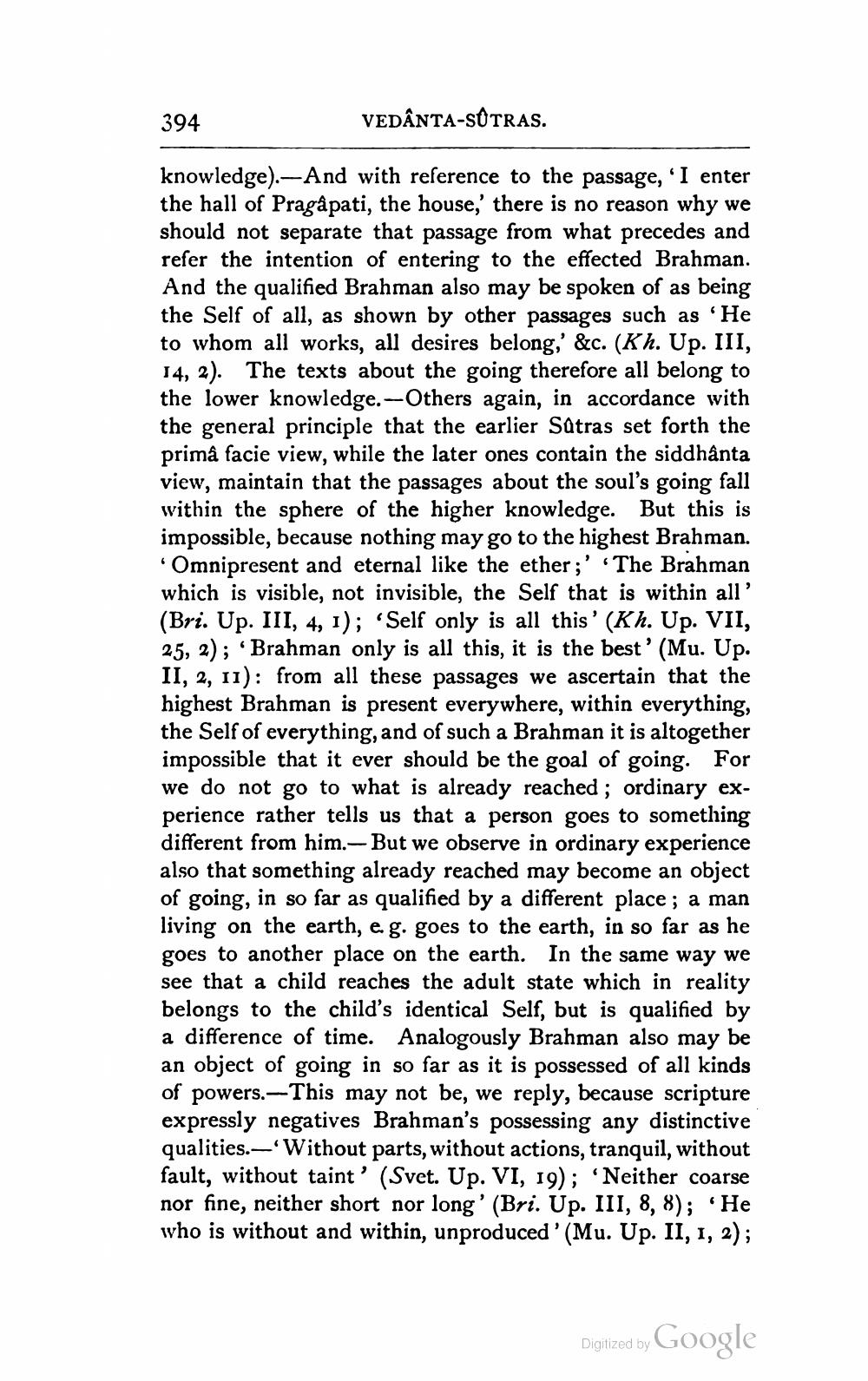________________
394
VEDÂNTA-SÚTRAS.
knowledge).—And with reference to the passage, 'I enter the hall of Pragâpati, the house,' there is no reason why we should not separate that passage from what precedes and refer the intention of entering to the effected Brahman. And the qualified Brahman also may be spoken of as being the Self of all, as shown by other passages such as 'He to whom all works, all desires belong,' &c. (Kh. Up. III, 14, 2). The texts about the going therefore all belong to the lower knowledge.-Others again, in accordance with the general principle that the earlier Satras set forth the primâ facie view, while the later ones contain the siddhânta view, maintain that the passages about the soul's going fall within the sphere of the higher knowledge. But this is impossible, because nothing may go to the highest Brahman.
Omnipresent and eternal like the ether;' The Brahman which is visible, not invisible, the Self that is within all' (Bri. Up. III, 4, 1); 'Self only is all this' (Kh. Up. VII, 25, 2); Brahman only is all this, it is the best' (Mu. Up. II, 2, 11): from all these passages we ascertain that the highest Brahman is present everywhere, within everything, the Self of everything, and of such a Brahman it is altogether impossible that it ever should be the goal of going. For we do not go to what is already reached; ordinary experience rather tells us that a person goes to something different from him.- But we observe in ordinary experience also that something already reached may become an object of going, in so far as qualified by a different place; a man living on the earth, eg. goes to the earth, in so far as he goes to another place on the earth. In the same way we see that a child reaches the adult state which in reality belongs to the child's identical Self, but is qualified by a difference of time. Analogously Brahman also may be an object of going in so far as it is possessed of all kinds of powers.-This may not be, we reply, because scripture expressly negatives Brahman's possessing any distinctive qualities.—'Without parts, without actions, tranquil, without fault, without taint' (Svet. Up. VI, 19); 'Neither coarse nor fine, neither short nor long' (Bri. Up. III, 8, 8); He who is without and within, unproduced'(Mu. Up. II, 1, 2);
Digitized by Google




